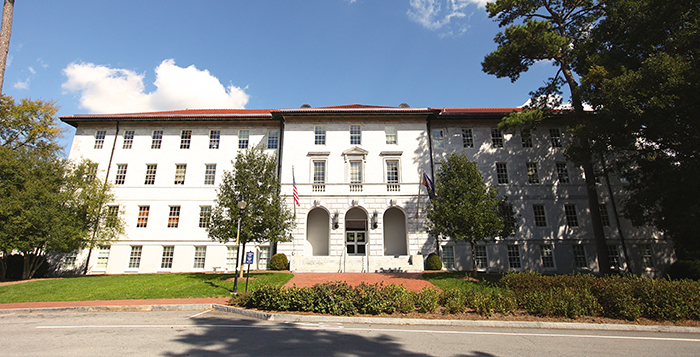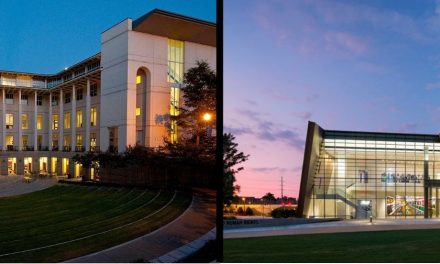By Stephen Fowler
Assistant News Editor
Editor’s note: Names of faculty members who spoke during the meeting have been omitted, in accordance with the terms that allowed the Wheel to attend the meeting.
More than 125 of the College’s 500-plus faculty members met in White Hall 208 to hear and discuss changes to the Emory College of Arts and Sciences (ECAS) bylaws, which were reexamined following the January 2014 report of the Process Review Committee (PRC). The bylaws govern the organization and procedures of the faculty of Emory College.
The PRC, which investigated the decision-making process that determined the department changes announced in September 2012, concluded that the College bylaws at the time “do not contain clear and sufficient procedures for the closing, changing or reorganizing departments or programs,” according to a Jan. 28, 2014 Wheel article.
The Governance Committee (GovCom) of ECAS gave their report on revisions to the ECAS bylaws that sought to “update various provisions in addition to proposing substantive changes that alter the structure and process of faculty governance in the College” at the Nov. 12 faculty meeting, according to the Report and Explanation of Changes document given at the meeting.
One member on GovCom explained to faculty that in this full meeting, no actual legislation or changes would be made, but the meeting would instead serve as an opportunity for feedback regarding the changes to the bylaws.
The main change would be the establishment of a College Senate that replaces GovCom.
The Senate, an elected and representative body of the College faculty, would have eight representatives from each departmental division (Division of the Humanities, Division of Natural Sciences and Mathematics and Division of Social Sciences) in addition to three at-large senators and seven non-voting ex officio positions.
Currently, GovCom represents the College faculty and has the ability to consider or take positions on “any matter of interest to Emory College faculty including those having to do with the role of the College within the University where action by the Faculty of the College is presently limited by University By-laws,” according to the ECAS bylaws.
According to the current version of the bylaws, the administration consults with GovCom “on all matters pertaining to the College and to the Faculty of the College,” and shall include but not be limited to “proposals for the development and modification of College programs and the setting of priorities and goals for the College.” The bylaws go on to state that budgetary implications of such proposals are also under GovCom’s purview.
GovCom came under significant criticism after the department changes in 2012. Some faculty, students and outside observers felt that the process surrounding which departments would be cut was unclear.
Another change discussed was the number of faculty meetings, with a minimum of two per academic year instead of two per semester.
Much feedback was offered regarding the change in definition of what constitutes a quorum of faculty: the new proposal is one-third, or 172 faculty, to constitute a quorum. The current number is 70 faculty.
Many faculty members spoke out in opposition to what was perceived as an impossibly high number.
“Even in the year we had the cuts, there was only about 150 [faculty] present,” one faculty member said.
Another faculty member said that they think that establishing this type of quorum “would guarantee this faculty would never act as a whole again.”
After a recap of the previous hour’s discussion, the following motion from a faculty member was read aloud and put up to a vote.
“The faculty expresses support for the principle of a Senate model and recommends that GovCom continue working on the revision of the draft bylaws.”
By a nearly unanimous vote, the resolution passed.
– By Stephen Fowler, Assistant News Editor
Stephen Fowler 16C is the political reporter at Georgia Public Broadcasting, the statewide NPR affiliate in Georgia. He graduated from Emory with a degree in Interdisciplinary Studies and covered the central administration and Greek Life for the Wheel before serving as assistant news editor, Emory Life editor and the Executive Digital Editor from 2015-16.





